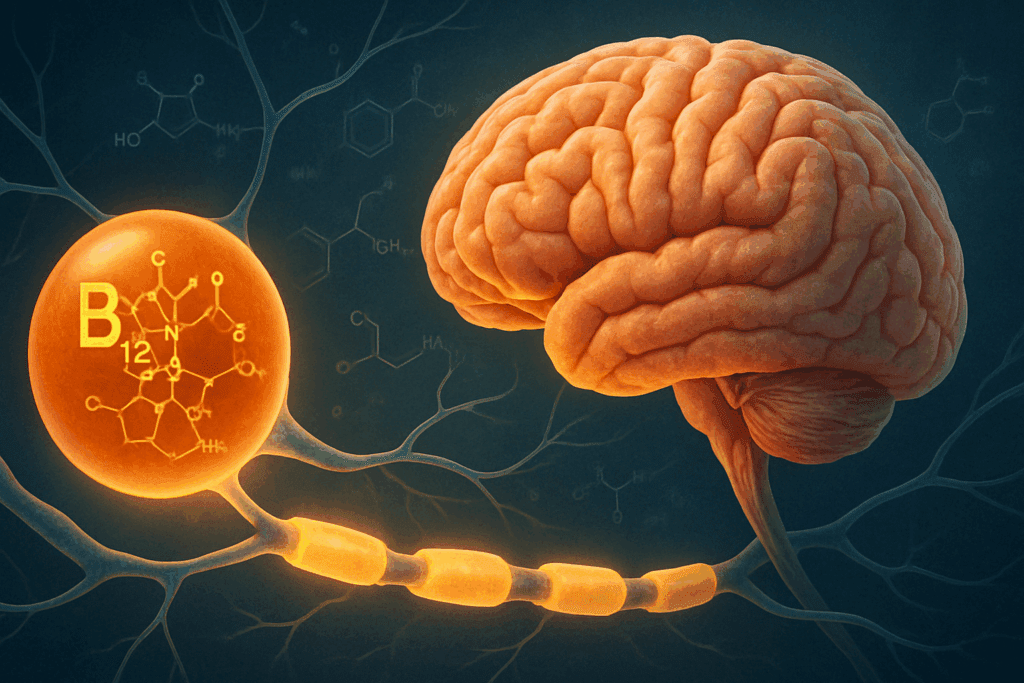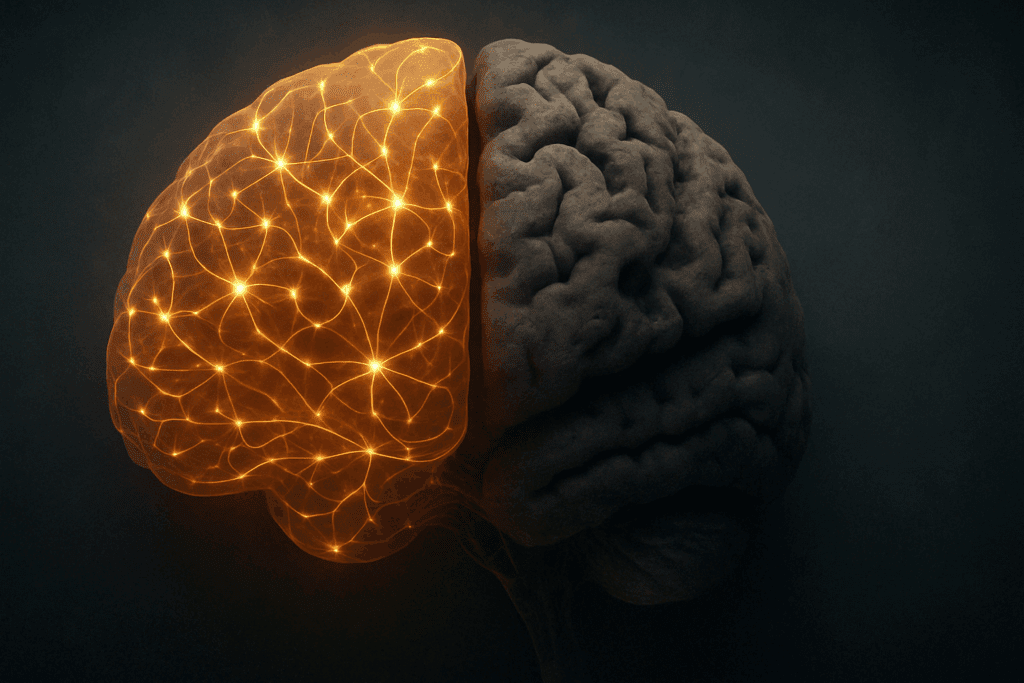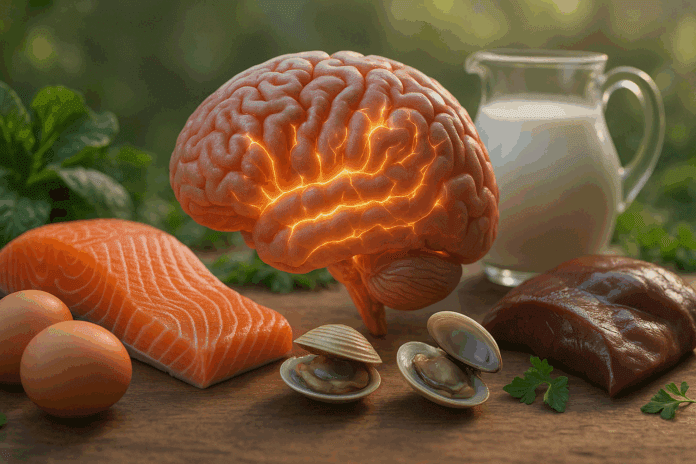
The Crucial Role of Vitamin B12 in Brain Health
Vitamin B12, also known as cobalamin, is a water-soluble vitamin that plays a vital role in maintaining neurological function, producing DNA, and supporting red blood cell formation. It is particularly essential for the brain because of its involvement in the synthesis of myelin—the protective sheath that surrounds nerves—and neurotransmitters like serotonin and dopamine. These functions are crucial for optimal brain performance, and a deficiency in vitamin B12 can lead to significant cognitive disturbances. The question often asked—is vitamin B12 good for memory—reflects growing interest in how this nutrient influences cognition and long-term brain health. Understanding the biochemical underpinnings of B12 helps illuminate why it may be beneficial for cognitive clarity, memory retention, and mental alertness, especially in aging populations.
For individuals who suffer from a vitamin B12 deficiency, symptoms often include forgetfulness, difficulty concentrating, and even mood changes. In severe cases, prolonged deficiency may lead to neurological impairments, including peripheral neuropathy and irreversible cognitive decline. It’s no surprise, then, that many researchers and healthcare professionals are exploring whether does vitamin B12 help with memory in measurable, clinically significant ways. What has emerged is a picture that is both hopeful and nuanced: while B12 is not a miracle cure for cognitive decline, it appears to play a protective role against memory loss when levels are sufficient. B12 helps to prevent brain atrophy, particularly in the hippocampus, the region associated with memory formation and spatial navigation. This biochemical influence on brain structure highlights why maintaining adequate B12 levels is considered essential for mental acuity, especially in older adults or those with absorption disorders.
Even among the younger population, emerging data suggests that subtle deficiencies in B12 could impair short-term memory, concentration, and mental focus. For students and professionals seeking cognitive edge, addressing a marginal B12 shortfall might enhance alertness and reduce brain fog. Therefore, evaluating whether is B12 good for memory is not just a concern for the elderly—it spans across age groups, touching on lifestyle factors such as diet, gut health, and even long-term use of medications like proton pump inhibitors or metformin. When taken together, the research points to a clear conclusion: B12 is not just a peripheral nutrient—it is central to how we process, retain, and recall information.
You may also like: What to Eat to Boost Memory: Science-Backed Brain Foods That Improve Recall, Focus, and Long-Term Mental Health

How B12 Deficiency Leads to Memory Loss and Cognitive Decline
A deficiency in vitamin B12 doesn’t always manifest with dramatic symptoms, making it a stealthy contributor to cognitive decline. The early signs can be subtle—occasional forgetfulness, slower mental processing, or difficulty finding the right words. Over time, however, these symptoms can progress, leading to more significant memory loss, confusion, and even early signs of dementia. This relationship has led scientists and clinicians alike to investigate does B12 help with memory by reversing or halting these changes once supplementation begins. While the extent of cognitive recovery may depend on how long the deficiency has been present, many individuals do experience noticeable improvements in mental clarity and focus when B12 levels are restored to optimal ranges.
The connection between vitamin deficiency and memory loss is well documented in medical literature. Vitamin B12 deficiency, in particular, disrupts methylation processes in the brain, increases homocysteine levels, and causes damage to the nervous system. Homocysteine is an amino acid that, when elevated, is associated with greater risk for stroke, cardiovascular disease, and neurodegeneration. Vitamin B12 helps convert homocysteine into methionine, a compound necessary for neurotransmitter synthesis and DNA repair. This intricate web of biochemical processes underscores why even marginal B12 deficiencies can have a ripple effect on brain function. For example, neuroimaging studies have shown that individuals with low B12 levels often have smaller brain volumes and more white matter lesions—both indicators of cognitive decline.
Additionally, the population most at risk for B12 deficiency includes older adults, vegetarians and vegans, individuals with gastrointestinal disorders like Crohn’s or celiac disease, and those who have undergone gastric bypass surgery. Even chronic use of certain medications, including antacids and diabetes treatments like metformin, can impair B12 absorption. This raises a critical question: does vitamin B12 help with memory in these vulnerable populations? The evidence suggests it does—particularly when B12 supplementation is introduced before significant neurological damage has occurred. Clinical trials show that correcting a deficiency can improve memory performance, executive function, and mood in people with low B12 levels, though the degree of improvement varies.
What’s also noteworthy is the role of subclinical B12 deficiency, which may go undetected because standard blood tests don’t always reflect intracellular B12 levels. Methylmalonic acid (MMA) and homocysteine tests are often more accurate indicators of functional deficiency. As researchers continue to explore the question is B12 good for memory, the consensus is building around the idea that prevention and early detection of deficiency are key. Memory loss that results from B12 deficiency is not an inevitable part of aging—it is a modifiable risk factor. With greater public awareness and proper screening, many people could preserve their cognitive function well into old age.

Scientific Evidence Linking B12 to Memory Enhancement
In the realm of cognitive neuroscience and nutritional psychiatry, there is growing scientific interest in understanding how vitamin B12 influences memory formation and mental clarity. Numerous clinical studies have explored the potential benefits of B12 supplementation for enhancing memory, particularly in individuals who exhibit signs of deficiency. A randomized controlled trial published in the American Journal of Clinical Nutrition revealed that older adults with low-normal B12 levels showed improved memory scores after receiving B12 injections over a four-month period. This finding directly supports the relevance of questions like does B12 help with memory in a clinical setting, particularly among aging individuals at risk for cognitive impairment.
One important distinction in the scientific literature is that B12 appears to be most beneficial when there is an underlying deficiency. In people with already adequate levels, additional supplementation may not yield significant improvements in memory performance. However, when deficiency is present, the benefits can be substantial. These include better word recall, improved verbal fluency, and sharper attention span. This evidence supports the broader understanding that B12 for memory is not about supercharging cognitive performance in healthy individuals, but rather about restoring function and preventing decline where deficits exist. Researchers have also observed that combining B12 with folic acid and vitamin B6 may further enhance its cognitive benefits, as these nutrients work synergistically to lower homocysteine levels and support brain metabolism.
Additional insights have come from neuroimaging studies using MRI technology. In these studies, participants with adequate B12 levels demonstrated more robust hippocampal function and fewer age-related changes in brain volume. This finding is crucial because the hippocampus is intimately involved in forming new memories and consolidating short-term into long-term memory. These structural advantages raise important implications about the role of B12 not just in symptom management but in long-term brain preservation. So, when evaluating is vitamin B12 good for memory, the answer seems increasingly affirmative—especially when it comes to preserving hippocampal integrity and maintaining white matter health.
It’s also worth noting that certain populations may have genetic variations that affect B12 absorption and metabolism, such as MTHFR polymorphisms. For these individuals, even standard levels of B12 may not be sufficient, and active forms like methylcobalamin may be more effective than cyanocobalamin. This nuance further emphasizes the need for personalized nutrition strategies when addressing memory and cognitive health. Overall, the scientific consensus is that while B12 is not a panacea for all memory issues, its role is foundational and essential. Understanding this allows healthcare providers to make informed decisions and offers patients a clear pathway for protecting their cognitive abilities.
Personalized Supplementation and Absorption Strategies for Cognitive Support
When addressing vitamin B12 and its potential to enhance memory and cognitive function, a one-size-fits-all approach often falls short. The body’s ability to absorb B12 varies widely among individuals due to genetic, dietary, and health-related factors. For example, those with reduced stomach acid—a common issue in older adults—may struggle to liberate B12 from food sources, impairing absorption even when dietary intake is sufficient. This complexity underscores why the question is vitamin B12 good for memory is not just about intake, but also about how well the nutrient is metabolized and utilized by the body. Choosing the appropriate form of supplementation becomes crucial in optimizing B12 levels for neurological health.
There are several forms of B12 supplements available, each with distinct absorption pathways and biochemical characteristics. Cyanocobalamin is the most commonly used form due to its stability and cost-effectiveness, but it requires conversion in the liver before it becomes bioactive. In contrast, methylcobalamin—the active coenzyme form—is directly usable by the body and may be more effective for individuals with methylation or absorption issues. For those who have difficulty absorbing B12 orally due to conditions such as pernicious anemia or gastrointestinal surgery, intramuscular injections or sublingual forms bypass the digestive tract entirely. This route can be especially important for individuals asking, does vitamin B12 help with memory when they are at higher risk of deficiency despite taking oral supplements.
Additionally, co-supplementation with other nutrients like folate and B6 is often recommended to enhance B12’s neurological benefits. These B-complex vitamins work synergistically in homocysteine metabolism and neurotransmitter synthesis, amplifying the protective effects on the brain. For individuals with elevated homocysteine levels—a known risk factor for Alzheimer’s and dementia—a targeted B-complex regimen may provide significant cognitive benefits. Tailoring supplementation based on lab results, including MMA and homocysteine levels, allows for a precision-medicine approach that aligns with the complexity of brain health. As awareness grows around B12 for memory, personalized dosing and delivery methods are increasingly seen as essential elements in any strategy aimed at cognitive preservation.
The timing and duration of supplementation also matter. Cognitive benefits are more likely to manifest when B12 deficiency is addressed early, before structural brain changes become irreversible. Patients who begin supplementation at the onset of memory complaints often report improvements in concentration, mental clarity, and mood within a few weeks. However, it may take months of consistent supplementation to reverse long-standing deficiencies, particularly when neurological symptoms are advanced. As such, long-term strategies that include routine monitoring and maintenance doses are advised for anyone at risk. In sum, B12 supplementation for cognitive health must be individualized, carefully monitored, and supported by a comprehensive understanding of nutritional biochemistry and patient-specific variables.

Dietary Sources of Vitamin B12 to Support Memory and Brain Health
For individuals aiming to optimize their memory and cognitive health through nutrition, understanding the most effective dietary sources of vitamin B12 is essential. Naturally occurring B12 is found almost exclusively in animal-derived foods, making it a nutrient of concern for those who follow vegetarian or vegan diets. Some of the richest sources include organ meats such as liver and kidney, shellfish like clams and oysters, and fish such as salmon, trout, and tuna. Dairy products and eggs also contain modest amounts of B12 and can contribute to daily intake. Incorporating these foods regularly into one’s diet supports not only physical health but also helps address questions like is B12 good for memory by providing the body with the nutrients it needs for optimal brain function.
While meat eaters can often meet their vitamin B12 requirements through diet alone, individuals with limited or no consumption of animal products need to be more intentional. Fortified foods offer a practical solution, with many plant-based milks, breakfast cereals, and nutritional yeasts now containing added B12. These options are particularly important in light of evidence showing that even mild B12 deficiency may contribute to cognitive changes over time. When we consider the broader discussion around does B12 help with memory, dietary sufficiency becomes a foundational step in prevention. Ensuring consistent B12 intake through either food or fortified products can serve as a first line of defense against subtle memory lapses that could worsen without intervention.
Beyond food choices, it is important to consider bioavailability—the body’s ability to absorb and utilize nutrients. Cooking methods, individual gut health, and even age-related changes in digestive enzyme levels can all impact how much B12 from food is actually absorbed. For this reason, even those who eat a B12-rich diet may experience deficiencies if underlying absorption issues exist. This is particularly relevant for older adults, whose risk of developing B12 malabsorption increases with age due to conditions like atrophic gastritis. Addressing vitamin deficiency and memory loss in such cases may require not only dietary changes but also the strategic use of supplements to ensure therapeutic levels are reached.
Ultimately, the goal is to create a nutritional foundation that supports brain function across the lifespan. By prioritizing B12-rich foods and being mindful of absorption barriers, individuals can take a proactive approach to maintaining their mental clarity and reducing the risk of cognitive decline. In combination with personalized supplementation when necessary, dietary strategies represent a powerful tool in answering the ongoing question: does vitamin B12 help with memory in a real-world, sustainable way? The evidence increasingly suggests that it does—especially when integrated into a broader, well-rounded lifestyle that emphasizes brain health through every stage of life.
FAQ: Vitamin B12 and Memory Health
1. Can stress and anxiety influence how well B12 supports memory?
Yes, stress and anxiety can significantly affect how well vitamin B12 supports cognitive function. Chronic stress depletes B vitamins in the body and increases the production of cortisol, which interferes with memory and learning. In this context, the question does vitamin B12 help with memory becomes more nuanced. B12 may buffer the negative effects of stress by supporting adrenal function and neurotransmitter balance. While B12 alone may not erase the cognitive fog caused by chronic anxiety, maintaining optimal levels could help improve resilience to mental fatigue and emotional burnout. Thus, B12 acts as a foundational nutrient, especially important for individuals experiencing high levels of psychological stress.
2. Is there a link between sleep quality and how effectively B12 works for memory support?
Absolutely. Poor sleep impairs memory consolidation, while adequate B12 levels help regulate melatonin production, influencing the sleep-wake cycle. For people wondering is B12 good for memory, sleep quality is a critical factor. If sleep is disrupted, the brain cannot efficiently store new information, regardless of nutrient status. B12 can support more consistent circadian rhythms, enhancing the brain’s ability to process and retain memories. Therefore, pairing good sleep hygiene with sufficient B12 intake can produce more substantial cognitive benefits than either strategy alone.
3. Can B12 supplementation help individuals recovering from traumatic brain injury (TBI)?
Emerging research suggests that B12 may support brain repair mechanisms after a TBI. It contributes to myelin regeneration and reduces oxidative stress—both critical in neurological recovery. While it’s still being studied, early evidence supports the idea that does B12 help with memory is a relevant question for those in post-TBI rehabilitation. Supplementing with B12, particularly in its methylcobalamin form, may help protect neurons and aid in functional recovery. However, this should always be done under the guidance of a medical professional specializing in brain injury care.
4. How does B12 impact memory in individuals with thyroid dysfunction?
People with hypothyroidism or Hashimoto’s disease often experience symptoms of brain fog and memory lapses. B12 deficiency frequently coexists with thyroid disorders, complicating the picture. In such cases, is vitamin B12 good for memory becomes a critical inquiry. Correcting B12 deficiency may alleviate cognitive symptoms that thyroid hormone replacement alone doesn’t resolve. Integrating B12 therapy alongside thyroid treatment can yield better memory outcomes, especially for patients experiencing lingering mental fatigue and focus difficulties.
5. Are there specific cognitive tasks that respond better to B12 supplementation?
Yes, verbal recall and attention span are often the first cognitive functions to improve with B12 supplementation. In studies involving older adults, these tasks showed marked gains, especially when deficiency was identified early. The question does vitamin B12 help with memory finds strong support in the enhancement of word fluency and short-term recall tasks. Executive function, however, may require longer supplementation periods to see improvement. This targeted cognitive impact makes B12 particularly useful for students, professionals, and aging individuals seeking sharper mental agility in daily life.
6. Does vitamin deficiency and memory loss manifest differently in younger versus older adults?
Yes, the symptoms often differ by age group. In younger adults, B12 deficiency may present as mild brain fog, poor concentration, or irritability, while older adults may experience more noticeable memory loss or confusion. The relevance of vitamin deficiency and memory loss varies depending on age-related absorption changes and lifestyle factors. In both cases, early detection and treatment of B12 deficiency are crucial for preventing more severe cognitive issues. Younger individuals often recover faster with supplementation, whereas older adults may need longer and more sustained support.
7. How do vegan or plant-based diets affect the question of B12 for memory?
Since B12 is not naturally present in plant-based foods, vegans and some vegetarians are at higher risk of deficiency. This elevates the importance of asking is B12 good for memory within this demographic. Fortified foods and high-quality supplements are essential to maintain cognitive function on a plant-based diet. The absence of animal products means a proactive approach to B12 intake is necessary to avoid subtle deficits that can undermine memory and focus over time. Regular monitoring through blood tests is also recommended to ensure adequate levels.
8. Are there risks in taking too much B12 in hopes of enhancing memory?
While B12 is water-soluble and generally safe at high doses, megadosing without medical need can be unnecessary or even counterproductive. The question does B12 help with memory should always be framed within the context of individual health needs and lab values. For most people, excess B12 is excreted, but those with kidney issues or rare genetic conditions may need to be cautious. More is not always better, and optimal brain health depends on balanced nutrient intake. Working with a healthcare provider ensures that supplementation supports, rather than disrupts, cognitive function.
9. Can seasonal changes affect B12 levels and their impact on memory?
Yes, indirectly. During winter, people tend to consume fewer fresh foods, and limited sun exposure can disrupt mood and appetite regulation, affecting nutrient intake. In colder months, individuals may eat less B12-rich seafood or dairy, subtly increasing deficiency risk. This seasonal shift can exacerbate memory lapses in susceptible individuals, reinforcing the importance of asking does vitamin B12 help with memory year-round. Adjusting diet and supplementation during seasonal transitions may help stabilize mood and cognitive clarity.
10. What future research areas are promising in the study of B12 for memory health?
Several exciting avenues are being explored, including B12’s role in neuroplasticity, epigenetic regulation of memory, and early detection of Alzheimer’s disease biomarkers. Research teams are now asking is vitamin B12 good for memory not just as a treatment for deficiency, but as a potential preventive strategy for cognitive decline. Future studies may investigate how B12 interacts with other brain-supportive nutrients and whether it can delay the onset of dementia in high-risk populations. Personalized nutrition and genomics are also expected to refine how B12 interventions are tailored for memory preservation. These innovations could transform how we think about cognitive aging and preventative brain care.
Conclusion: Does Vitamin B12 Help with Memory? What the Evidence and Experience Say
The growing body of evidence supporting the role of vitamin B12 in memory, cognition, and overall brain health has sparked meaningful conversations across the medical, nutritional, and scientific communities. From its biochemical role in neurotransmitter production to its influence on homocysteine metabolism and white matter preservation, B12 is clearly integral to maintaining mental clarity and preventing age-related cognitive decline. As the science evolves, the answer to the question is vitamin B12 good for memory becomes increasingly clear: yes—particularly when deficiency is present or risk factors for low levels exist.
What makes this issue particularly important is the fact that B12 deficiency is both widespread and underdiagnosed. Symptoms may be subtle at first, but their progression can lead to serious cognitive and neurological complications if left unchecked. The good news is that does B12 help with memory is no longer just a theoretical question. Clinical trials, observational studies, and real-world patient experiences all point to the cognitive benefits of correcting B12 deficiencies early and maintaining optimal levels over time. This holds true not only for elderly individuals and those with digestive disorders but also for younger populations facing high stress, nutrient-poor diets, or the cognitive demands of modern life.
B12’s role as both a preventative and restorative nutrient means that it should not be overlooked in any discussion of brain health. Whether through dietary sources, fortified foods, or strategic supplementation, supporting B12 intake is a proactive and evidence-based approach to protecting memory and enhancing cognitive resilience. For those already experiencing symptoms of mental fog or forgetfulness, screening for B12 deficiency is a simple but powerful step that can yield life-changing benefits. And for those aiming to safeguard their cognitive health well into old age, consistent attention to B12 status may prove to be one of the most impactful decisions they make.
In conclusion, while no single nutrient holds the key to perfect memory, vitamin B12 comes remarkably close to being essential in this regard. The convergence of clinical data, nutritional insight, and neurological research strongly affirms that B12 for memory is more than a trending topic—it’s a scientifically grounded strategy for maintaining cognitive health and quality of life. As we look toward a future of increasing longevity and mental demands, investing in brain health through optimal B12 support is a choice rooted in both wisdom and science.
Was this article helpful? Don’t let it stop with you. Share it right now with someone who needs to see it—whether it’s a friend, a colleague, or your whole network. And if staying ahead on this topic matters to you, subscribe to this publication for the most up-to-date information. You’ll get the latest insights delivered straight to you—no searching, no missing out.
Further Reading:
Is Vitamin B12 Good for Memory? Understanding the Connection
The Critical Role of Vitamin B12 in Myelin Formation and Memory Enhancement.
Disclaimer
The information contained in this article is provided for general informational purposes only and is not intended to serve as medical, legal, or professional advice. While Health11News strives to present accurate, up-to-date, and reliable content, no warranty or guarantee, expressed or implied, is made regarding the completeness, accuracy, or adequacy of the information provided. Readers are strongly advised to seek the guidance of a qualified healthcare provider or other relevant professionals before acting on any information contained in this article. Health11News, its authors, editors, and contributors expressly disclaim any liability for any damages, losses, or consequences arising directly or indirectly from the use, interpretation, or reliance on any information presented herein. The views and opinions expressed in this article are those of the author(s) and do not necessarily reflect the official policies or positions of Health11News.


